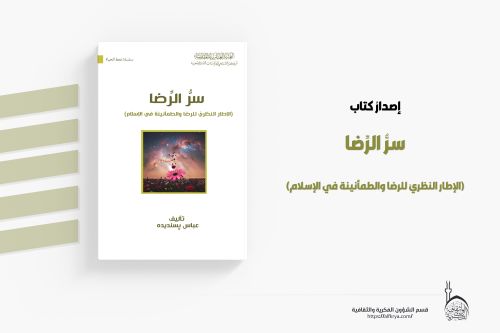

Grammar


Tenses


Present

Present Simple

Present Continuous

Present Perfect

Present Perfect Continuous


Past

Past Continuous

Past Perfect

Past Perfect Continuous

Past Simple


Future

Future Simple

Future Continuous

Future Perfect

Future Perfect Continuous

Passive and Active


Parts Of Speech


Nouns

Countable and uncountable nouns

Verbal nouns

Singular and Plural nouns

Proper nouns

Nouns gender

Nouns definition

Concrete nouns

Abstract nouns

Common nouns

Collective nouns

Definition Of Nouns


Verbs

Stative and dynamic verbs

Finite and nonfinite verbs

To be verbs

Transitive and intransitive verbs

Auxiliary verbs

Modal verbs

Regular and irregular verbs

Action verbs


Adverbs

Relative adverbs

Interrogative adverbs

Adverbs of time

Adverbs of place

Adverbs of reason

Adverbs of quantity

Adverbs of manner

Adverbs of frequency

Adverbs of affirmation


Adjectives

Quantitative adjective

Proper adjective

Possessive adjective

Numeral adjective

Interrogative adjective

Distributive adjective

Descriptive adjective

Demonstrative adjective


Pronouns

Subject pronoun

Relative pronoun

Reflexive pronoun

Reciprocal pronoun

Possessive pronoun

Personal pronoun

Interrogative pronoun

Indefinite pronoun

Emphatic pronoun

Distributive pronoun

Demonstrative pronoun


Pre Position


Preposition by function

Time preposition

Reason preposition

Possession preposition

Place preposition

Phrases preposition

Origin preposition

Measure preposition

Direction preposition

Contrast preposition

Agent preposition


Preposition by construction

Simple preposition

Phrase preposition

Double preposition

Compound preposition


Conjunctions

Subordinating conjunction

Correlative conjunction

Coordinating conjunction

Conjunctive adverbs


Interjections

Express calling interjection


Grammar Rules

Preference

Requests and offers

wishes

Be used to

Some and any

Could have done

Describing people

Giving advices

Possession

Comparative and superlative

Giving Reason

Making Suggestions

Apologizing

Forming questions

Since and for

Directions

Obligation

Adverbials

invitation

Articles

Imaginary condition

Zero conditional

First conditional

Second conditional

Third conditional

Reported speech


Linguistics

Phonetics

Phonology


Semantics


Pragmatics

Linguistics fields

Syntax

Morphology

Semantics

pragmatics

History

Writing

Grammar

Phonetics and Phonology

Semiotics


Reading Comprehension

Elementary

Intermediate

Advanced


Teaching Methods

Teaching Strategies
Southwestern phonology: consonants
المؤلف:
Ulrike Altendorf and Dominic Watt
المصدر:
A Handbook Of Varieties Of English Phonology
الجزء والصفحة:
200-9
2024-03-08
1170
Southwestern phonology: consonants
Rhoticity: Most Southwestern accents preserve post-vocalic /r/, which is frequently retroflex in quality (i.e.  ). Wells (1982: 342), quoting LAE results, reports that the iso-gloss separating retroflex from post-alveolar /r/ runs from Bristol to Portsmouth. The retroflex areas are thus Hampshire, Wiltshire, Dorset, Somerset, Devon and Cornwall. Full rhoticity occurs in a wide range of social and local accents ranging from the working to the middle class and from rural to urban accents. According to Wells (1982: 341), rhoticity can be found in Bristol, Exeter and (to a lesser extent) in Southampton, but not in Plymouth and Bournemouth.
). Wells (1982: 342), quoting LAE results, reports that the iso-gloss separating retroflex from post-alveolar /r/ runs from Bristol to Portsmouth. The retroflex areas are thus Hampshire, Wiltshire, Dorset, Somerset, Devon and Cornwall. Full rhoticity occurs in a wide range of social and local accents ranging from the working to the middle class and from rural to urban accents. According to Wells (1982: 341), rhoticity can be found in Bristol, Exeter and (to a lesser extent) in Southampton, but not in Plymouth and Bournemouth.
The exact workings of rhoticity in the Southwest of England are complex and not yet fully understood. According to Wells (1982: 342), rhoticity in the Southwest means R coloring of the preceding vowel. In words of the lexical sets NURSE and lettER, the entire vowel receives R coloring, but for words of the START, NORTH, FORCE, NEAR, SQUARE and CURE sets, it is either the whole vowel or just the endpoint of the diphthong/triphthong which receives R coloring. As with L vocalization, R coloring affects the phonetic quality of the preceding vowel and has led to the rise of new monophthongs and diphthongs. These processes and the theoretical problems that they pose are discussed in Wells (1982: 342–343).
Southwestern middle-class speakers sometimes have a pronunciation where post-vocalic /r/ is not phonetically realized but the effects of rhoticity are still preserved. These speakers have, for instance, a centring diphthong in START words, [staət], but not in words such as spa, [spa: ~ spa:] (Wells 1982: 343).
Hyper-rhoticity can also occur, especially in commA words, which then end in /r/. It can also be sporadically heard in items such as khaki  for which, presumably, Southwestern speakers have mistakenly reconstructed a post-vocalic /r/ on the basis of productions they have heard produced by speakers of non-rhotic accents such as RP. Wakelin (1986: 31) lists path, nought, idea, yellow and window as items recorded with hyper-rhotic pronunciations, and also cites post-vocalic /r/ in words in which metathesis may take place (e.g. ‘purty’ for pretty, ‘gurt’ for great, etc.).
for which, presumably, Southwestern speakers have mistakenly reconstructed a post-vocalic /r/ on the basis of productions they have heard produced by speakers of non-rhotic accents such as RP. Wakelin (1986: 31) lists path, nought, idea, yellow and window as items recorded with hyper-rhotic pronunciations, and also cites post-vocalic /r/ in words in which metathesis may take place (e.g. ‘purty’ for pretty, ‘gurt’ for great, etc.).















 قسم الشؤون الفكرية يصدر مجموعة قصصية بعنوان (قلوب بلا مأوى)
قسم الشؤون الفكرية يصدر مجموعة قصصية بعنوان (قلوب بلا مأوى) قسم الشؤون الفكرية يصدر مجموعة قصصية بعنوان (قلوب بلا مأوى)
قسم الشؤون الفكرية يصدر مجموعة قصصية بعنوان (قلوب بلا مأوى) قسم الشؤون الفكرية يصدر كتاب (سر الرضا) ضمن سلسلة (نمط الحياة)
قسم الشؤون الفكرية يصدر كتاب (سر الرضا) ضمن سلسلة (نمط الحياة)

















